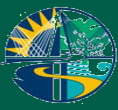Education
The PHYGEO ENVI Lab covers the educational needs of SRSE at undergraduate and postgraduate level in the area of environmental management and protection.
Undergraduate Courses
The course Physical Geography and Environment is introductory to the basics of the natural environment and ecology.
The purpose is to provide scientific knowledge on the subjects that refer to the natural environment, the forces that influence it, the mechanisms that act on it, and the changes that have occurred from natural processes and human intervention.
Physical Geography is a complex subject that draws information and knowledge from various natural sciences, such as Geology, Climatology, Soil Science, Hydrology, Forestry, and Biology, and focuses its attention on how and by what mechanisms the various natural phenomena and environmental conditions are distributed in the geographical space, how often they occur, how they affect humans and are affected by their activities.
Upon successful completion of the course, the student develops skills and is able to:
- understand the characteristics, properties, and problems of the basic variables of the natural environment with emphasis on the processes and interactions between the elements of the natural environment, such as soil, water, biodiversity, relief, and landscape.
- measures and calculates the basic properties and parameters of each natural environment variable in the field and the laboratory.
- evaluates laboratory measurements, qualitative and quantitative characteristics of the corresponding natural variable based on field data.
- creates maps and diagrams based on measurements and parameters and draws technical conclusions.
The course aims for the graduate to acquire the following skills:
- search, analyze, and synthesize data using technological tools and methods.
- respect for the natural environment.
- autonomous work in an interdisciplinary environment.
The Environmental Impacts course is an interdisciplinary choice-direction course and is addressed to 8th Semester SRSGE students.
The purpose is to provide the necessary scientific knowledge and application experience to create the cognitive background that will help students deal with the issues of environmental impacts from planned technical projects and programs (development, spatial planning).
It also includes the preparation of a topic that aims to consolidate and understand the basic concepts of environmental licensing with an emphasis on what a study is and how it is done, the standards followed in an environmental impact study, environmental impact assessment methodologies, environmental impact study evaluation and monitoring process, the applicable institutional framework, remedial measures.
Upon successful completion of the course, the student develops skills and will be able to:
- understand the institutional framework of environmental permitting at the European and national levels.
- understand basic concepts of the environmental impact assessment process and strategic environmental impact assessment.
- analyze the state of the natural and human origin environment of an area.
- assess and evaluate the environmental impacts on the natural and human origin environment during the construction, implementation, and operation of a project and/or activity using methodological approaches.
- respond to all stages of environmental licensing of a project, an activity, a plan, or a program (e.g. consultation)
- prepare an environmental impact assessment or a Strategic Environmental Impact Assessment in accordance with the applicable institutional framework.
The course aims for the graduate to acquire the following skills:
- search, analyze, and synthesize data using technological tools and methodological approaches.
- independent work and group work.
- project planning and management.
- respect for the natural environment.
- exercise criticism and self-criticism.
- decision making.
The course Climate Crisis and Natural Resource Management in the study program of SRSGE is compulsory, with the subject of environmental issues.
It is aimed at students of the 8th Semester in order to create a substantial background in matters of management of the natural environment.
The purpose of the course is to offer students the necessary scientific knowledge, but also application experiences, to create the cognitive background that will help them in the study, monitoring of the natural environment, the planning of development projects within protected areas, and the planning of policies and actions for the protection and preservation of the natural environment.
It also includes subject preparation to consolidate and understand the basic concepts of natural resource management, the geopolitical specificities of natural resource management, and the climate crisis (Mitigation, adaptation, resilience, concepts such as the WEFE Nexus, ecosystem services, but also issues of environmental policy, governance of natural resources, and civil society participation in the management of the natural environment).
Upon successful completion of the course, the student develops skills and is able to:
- understand the framework of environmental policy and governance of the natural environment.
- understand basic concepts of natural resource management.
- analyze the state of the natural and man-made environment of an area.
- use modern technological tools to monitor and assess the natural resources of an area.
- develop an action plan for the protection and conservation of the natural resources of an area.
The course aims for the graduate to acquire the following skills:
- search, analyze, and synthesize data using technological tools and methodological approaches.
- independent work and group work.
- promotion of free, creative, and inductive thinking.
- respect for the natural environment.
- exercise criticism and self-criticism.
- decision making.
Access course content via Helios
The interscholastic course Environment & Development (http://perseus.thermo.mech.ntua.gr/environ-develop) is a pioneering effort, offered as a horizontal course for all NTUA undergraduate students to explore the interconnection between the development perspective of our country and the protection of its environment.
The course was organized based on a series of lectures where for each topic a fruitful dialectical confrontation is developed between the dipole Development or Environment.
In this effort, members of the academic community from all NTUA Faculties participate, as well as several renowned researchers, academics, and professionals in the field. In this process, the students attending the course have an active participation. Coming from all NTUA Schools, they bring their perspective to the discussion.
At the same time, throughout the semester, students work in small groups on a topic related to the course, developing substantiated arguments for or against it.
Upon successful completion of the course, students will be able to:
- demonstrate the complex nature of contemporary developmental, technological, and environmental problems and understand the necessity of interdisciplinarity and an integrated approach, research, and response, opening cracks in the supposedly limited perspective of their school.
- come into contact with the real dilemmas they will face tomorrow, many of which cannot be solved exclusively in the technological field.
- have the theoretical background for the analysis of these problems.
The course aims for the graduate to acquire the following skills:
- search, analyze, and synthesize data using technological tools and methods.
- teamwork in an interdisciplinary environment.
Environmental Planning is an elective course that aims to develop students’ analytical judgment and synthetic ability to deal with existing design problems.
The environmental planning of an area aims at its sustainable development, putting the protection of the environment as the main principle.
The subject course’s main objective is acquiring students’ know-how in preparing a real study on environmental issues (planning and management) using the knowledge given in the previous semesters. The project course is a real application in a specific place and time and aims to gain experience in real problems.
Upon successful completion of the course, the student will be able to:
- study in depth the current situation of the study area.
- process and analyze the existing situation, using methodological and technological tools.
- identify the main environmental problems of the study area.
- propose and design specific measures for the protection and restoration (where necessary) of the natural environment, always aiming to improve the quality of life of the residents.
- evaluate the different alternatives to choose the best solution each time.
The course aims for the graduate to acquire the following skills:
- search, analyze, and synthesize data using technological tools and methods.
- generation of new research ideas.
- adaptation to new situations.
- decision-making.
- respect for the natural environment.
- teamwork in an interdisciplinary environment.
Graduate Courses
It is an elective course that consists of two basic modules that are relevant and interconnected as they aim to inform and educate stakeholders on issues of protection and prevention of environmental impacts from human activities and interventions. The environment can be distinguished it into three large groups, sometimes independent and sometimes in a special mix: The Natural Environment, the Anthropogenic Environment and the Mixed Environment in all three groups human has historically intervened in a variety of ways in order to achieve the maximum possible return for his personal benefit. It has not always been effective in this endeavor. His lack of knowledge in the beginning and his greed afterwards have accumulated a multitude of negative effects that eventually lead to the destruction, alteration and change of the very resources that are a factor of his success and happiness in the final analysis.
Challenges of urban suburban space due to Climate Change (CA) impacts – Exacerbation of problems from the intensity of the effects of CA in the 21st century – Addressing the impacts of CA – Pursuing goals of sustainable urban/ suburban development.
New concepts and approaches of collective action in the urban/suburban area – Promotion of collaborative forms of planning and outline of spatial and other policies, with scope of urban and suburban space.
Diploma and Master Theses
Under the supervision of PHYGEO ENVI Lab members diploma and graduate theses are elaborated in the area of management and protection of natural environment, adaption to climate change, environmental impact assessment usig with modern tools (LCA), management of natural resources, optimization of environmental systems, environmental design (Detailed list is available in greek)

